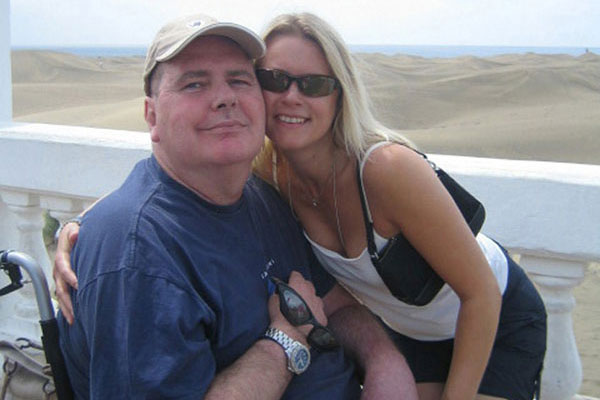How to survive the stress of caring
Date:
9 August 2022
Author:
Sara Challice

Did you know, three in five of us will be a carer during our lifetime, but sadly, the best part of 70% of carers fall ill from the stress and burden of caring.
Even within a few weeks of caring, we can find ourselves in 'Carers Response Mode' – your primary focus is on those around you, ignoring your own health and wellbeing, and suppressing your emotions. You don’t have time to think about you, others need your help. To then try giving to yourself can feel awkward, even selfish. I certainly experienced this after falling ill whilst caring for my husband who had a brain tumour.
During my time out recovering, I realised I needed to make changes so as not only survive my caring role, but regain my health and start enjoying life again.
So how can you overcome the continued burden of caring, to become more resilient and safeguard your own health?
Check in with yourself
As a carer, you’re often so busy being there for everyone else that you ignore your own health. You may even be suppressing your emotions, as you’re so busy tending to those around you. The pressure can build up, bit by bit, and go unnoticed until crisis strikes.
Do you have a good friend or family member you could check in with for a short time, once a week? This can be either face-to-face (socially distancing of course!), over the phone or via Skype. Or you could try journaling – writing down your feelings and the issues you’re experiencing. In observing what is actually happening, can help lead you to making better choices for yourself, as well as your loved ones.
Take a break
If you see each day as a list of chores, just doing this, just doing that – you’ll end up just falling into bed exhausted!
Even though times are ever more challenging, you still need to have regular breaks, as well as have quality time. You are not just here for a loved one, you are also here for you!
Try taking a short break between each chore, even if it's 10 minutes. This will help you pace the day. You could jot down a list of things you enjoy doing during these breaks, such as reading a magazine, having a kip, or calling a good friend for a chat. You can then pick from your 'break menu', when you stop for a rest.
Focus on the good stuff
There is often a lot to deal with and Carers are often in survival mode – focussing on the issues, to ensure everything and everyone is okay – but this does not make for an enjoyable life.
What are you happy and thankful for in your life? It may just be a hot shower that morning, or your comfy bed. It could be having loving and kind friends or patting your pet. If I'd had a bad day, I would climb into bed and think of five things I was grateful for that day. It always put a smile on my face and put me in a better state of mind before sleep.
Just remember to be kind to yourself and recognise all that you do. You really are amazing, being there for loved ones. Make sure you are also there for you!
Caring boosts longevity
A number of years ago, after I spoke at the Houses of Parliament on helping raise awareness on brain tumours, and what carers have to go through. After my talk, a neurosurgeon got up to speak and said he was often asked what the best criteria was for surviving a brain tumour. I presumed it was the latest chemotherapy, but his answer surprised us all.
He said, the best criteria for surviving a brain tumour was marital status. I loved this insight. I personally don’t think you have to be married, but if you have fallen ill and have someone fighting your corner and being a pillar of strength and support for you – this is a huge boost. Not only that, even if you are ill, you still have a reason to live – the love of another – and that is the carer.
I believe my love and care kept my husband alive for years longer, because he went downhill rapidly when in the hospice for a week to give me a break, but within a few days of coming home he was visibly better. Love really can help keep the cared for alive – but you do need to also care for yourself!
Carers in the UK, save our economy over £193 Billion pounds a year – the cost of a second NHS. That’s amazing! It is time we raise the value of care and support those caring for loved ones.
The award-winning book, Who Cares? is out now.

Share this
Up to: Partner blog 2022
Updated: 24 August 2022
